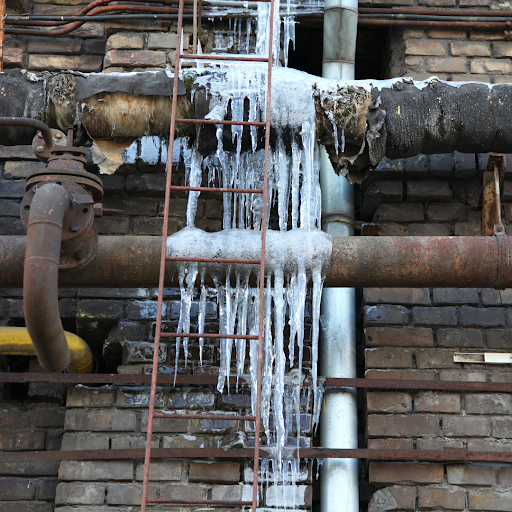Ways to Defend Your Pipes from Cold Weather: Specialist Guidance
Ways to Defend Your Pipes from Cold Weather: Specialist Guidance
Blog Article
We have discovered this post involving Helpful Tips to Prevent Frozen Pipes this Winter below on the internet and figured it made sense to relate it with you here.
:strip_icc()/snow-outdoor-faucet-pipes-4af65d1e5e904fb1aa7bf74071fe5d89.jpg)
Cold weather can wreak havoc on your plumbing, particularly by freezing pipes. Here's just how to prevent it from occurring and what to do if it does.
Intro
As temperatures drop, the threat of frozen pipes increases, potentially causing costly repair work and water damages. Understanding how to prevent icy pipes is vital for home owners in cold environments.
Avoidance Tips
Shielding at risk pipelines
Wrap pipes in insulation sleeves or make use of warmth tape to secure them from freezing temperatures. Focus on pipelines in unheated or exterior locations of the home.
Home heating techniques
Keep indoor rooms sufficiently warmed, particularly areas with pipes. Open up cabinet doors to enable cozy air to circulate around pipes under sinks.
Exactly how to determine icy pipelines
Try to find reduced water flow from taps, unusual smells or noises from pipes, and visible frost on subjected pipelines.
Long-Term Solutions
Architectural adjustments
Consider rerouting pipes away from outside wall surfaces or unheated locations. Add added insulation to attics, basements, and crawl spaces.
Upgrading insulation
Buy top quality insulation for pipes, attic rooms, and walls. Correct insulation aids preserve constant temperatures and reduces the threat of frozen pipelines.
Shielding Outside Pipes
Garden tubes and exterior faucets
Detach and drain garden hoses prior to winter season. Mount frost-proof faucets or cover outside faucets with protected caps.
Understanding Frozen Pipes
What triggers pipelines to ice up?
Pipelines freeze when subjected to temperature levels below 32 ° F (0 ° C) for extended durations. As water inside the pipes ices up, it expands, taxing the pipe walls and possibly causing them to rupture.
Threats and damages
Icy pipelines can lead to water supply disturbances, residential property damages, and expensive repair work. Burst pipes can flood homes and cause substantial architectural damages.
Indicators of Frozen Piping
Recognizing icy pipelines early can avoid them from rupturing.
What to Do If Your Pipelines Freeze
Immediate actions to take
If you presume frozen pipes, keep faucets open to relieve stress as the ice melts. Use a hairdryer or towels taken in hot water to thaw pipelines gradually.
Final thought
Preventing icy pipes requires aggressive actions and fast reactions. By recognizing the reasons, indications, and safety nets, house owners can safeguard their pipes throughout cold weather.
Helpful Tips to Prevent Frozen Pipes this Winter
UNDERSTANDING THE BASICS: WHY PIPES FREEZE AND WHY IT’S A PROBLEM
Water freezing inside pipes is common during the winter months, but understanding why pipes freeze, and the potential problems it can cause is crucial in preventing such incidents. This section will delve into the basics of why pipes freeze and the associated problems that may arise.
THE SCIENCE BEHIND FROZEN PIPES
When water reaches freezing temperatures, it undergoes a physical transformation and solidifies into ice. This expansion of water as it freezes is the primary reason pipes can burst. As the water inside the pipe freezes, it expands, creating immense pressure on the walls. If the pressure becomes too great, the pipe can crack or rupture, leading to leaks and water damage.
FACTORS THAT CONTRIBUTE TO PIPE FREEZING
Low Temperatures: Extremely cold weather, especially below freezing, increases the risk of pipes freezing. Uninsulated or Poorly Insulated Pipes: Pipes located in unheated areas, such as basements, crawl spaces, or attics, are more prone to freezing. Insufficient insulation or lack of insulation altogether exacerbates the problem. Exterior Wall Exposure: Pipes running along exterior walls are susceptible to freezing as they encounter colder temperatures outside. Lack of Heating or Temperature Regulation: Inadequate heating or inconsistent temperature control in your home can contribute to frozen pipes. PROBLEMS CAUSED BY FROZEN PIPES
- Pipe Bursting: As mentioned earlier, the expansion of water as it freezes can cause pipes to burst, resulting in significant water damage.
- Water Damage: When pipes burst, it can lead to flooding and water damage to your property, including walls, ceilings, flooring, and personal belongings.
- Structural Damage: Prolonged exposure to water from burst pipes can compromise the structural integrity of your home, leading to costly repairs.
- Mold and Mildew Growth: Excess moisture from water damage can create a favorable environment for mold and mildew growth, posing health risks to occupants.
- Disrupted Water Supply: Frozen pipes can also result in a complete or partial loss of water supply until the issue is resolved.
WHY CERTAIN PIPES ARE MORE PRONE TO FREEZING
- Location: Pipes located in unheated or poorly insulated areas, such as basements, crawl spaces, attics, or exterior walls, are at higher risk of freezing.
- Exterior Pipes: Outdoor pipes, such as those used for irrigation or exposed plumbing, are particularly vulnerable to freezing as they are directly exposed to the elements.
- Supply Lines: Pipes that carry water from the main water supply into your home, including the main water line, are critical to protect as freezing in these lines can affect your entire plumbing system.
- Underground Pipes: Pipes buried underground, such as those connected to sprinkler systems or outdoor faucets, can be susceptible to freezing if not properly insulated.
https://busybusy.com/blog/helpful-tips-to-prevent-frozen-pipes-this-winter/

Do you enjoy reading about 6 Ways to Prevent Frozen Pipes? Place feedback down below. We will be glad to hear your ideas about this entry. We are looking forward to see you back again in the near future. Kindly take a moment to promote this page if you enjoyed reading it. We appreciate reading our article about How to Prevent Your Pipes From Freezing.
Visit Website Report this page